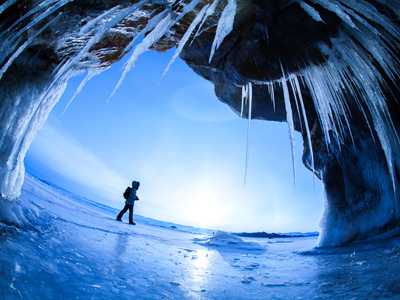
Glacial Deposition Landscapes
Your GCSE geography syllabus requires that you know about the distinctive landforms that result from the action of ice on the land. This quiz is concerned with helping you to revise the key depositional features left behind as a glacier or an ice sheet melts.
The Earth has been subjected to several ice ages, the most recent taking place in the quaternary period during the pleistocene epoch. It began about 120,000 years ago and ended around 10,000 years ago. The fact that it lasted 110,000 years does not mean that it was continuous, nor does it mean that the whole Earth was ice-covered. The glaciers and ice sheets advance and retreat periodically during an ice age. When they have retreated, it is called an interglacial, in fact, it is not known if the quaternary ice age has actually ended, we may just be in an interglacial. But don't worry, it takes centuries or even thousands of years for the ice sheets and glaciers to develop or melt.
Ready for more?
not all...
quizzers. Try to win a coveted spot on our Hall of Fame Page.







